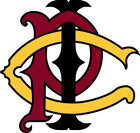Social Studies 10F (SST10F) - Required Course
The Social Studies course examines the past and present, and looks toward Canada's future. The course helps students acquire the skills, knowledge, and values necessary to become active democratic citizens and contributing members of their communities, locally, nationally, and globally. In so doing, the course is organized into 6 clusters: Profile of Canada, Human Rights, Living Together in Canada, Social Justice, Government, and Canada and the World.
Geography 20F (GEO20F) - Required Course
The Geography course offers a contemporary study of issues relevant to students and society. This course allows students the opportunity to see the interaction between their physical environment and human activities. In so doing, the course is organized into four major clusters: Geographic Literacy, Natural Resources, Food from the Land, and the Global Community. Within, each student will identify and analyze various current issues and offer potential solutions to these issues.
History 30F (HIS30F) - Required Course
This course examines Canadian historical events, policies, conflicts and people that have shaped our nation. Clusters of study include First People and Nouvelle France, British North America, Becoming a Sovereign Nation, Achievements and Challenges, and Defining Contemporary Canada. Students will link past events to current issues of today. Historical Thinking Concepts will be incorporated and students will have opportunities for inquiry-based learning.
Option Courses:
History of Rock & Roll 30S (HRC30S)
For those about to rock – we salute you! This course takes an extensive look at the story of rock & roll music as it unfolded in North America and Britain throughout the last century. In HRC30S, you will learn where rock music started, how it evolved, its highs and lows, its icons and outlaws and how it changed social history and popular culture along the way. From early roots music of the 40’s and 50’s to the heavy metal guitar heroes and hair bands of the 80’s and 90's – this course covers it all! There is no final exam in this course, however students will have the opportunity to create many different projects of their choosing, plus the opportunity to participate in live music jams!
Agriculture (AGC30S)
This course hopes to offer a current view of the state of Agriculture that will include multiple presenters such as Ag in the Classroom, and will strive to include the latest in technology trends. The goal is also to be able to leave the confines of the school to connect with local stakeholders and participate in Agriculture related experiences. This is an elective/option course and it is open to Grades 10-12 students. No prerequisites are required.
Indigenous Culture 11G (INC11G)
This course is an examination of traditional Indigenous culture, customs, beliefs, teachings, worldviews, ceremonies, medicines, music and food. Although there is many commonalities amongst Indigenous nations across North America there is also much diversity. The focus of this course will be on Indigenous nations in Canada with major emphasis on Manitoba’s First Nations, Métis and Inuit cultures. However, content remains broad and encompasses the teachings of many Indigenous nations.
Indigenous History 21G (INH21G)
This course traces the history of Indigenous people in Canada, with consideration given to both oral and written accounts. Topics include: ancient history, pre-contact era, post contact and fur trade, post-contact, treaties, assimilation and modern Indigenous issues. This course also discusses Indigenous accomplishments in Canada.
Current Topics in First Nations, Métis & Inuit Studies 40S (FNM40S)
This course is designed as a multi-disciplinary course that allows students to explore and develop skills and concepts in the Arts, English Language Arts, Geography, History, Social Studies, and Law. Students will develop a knowledge of the history of First Nations, Métis and Inuit peoples in order to better understand the present and to recognize the ongoing role of First Nations, Métis and Inuit peoples in shaping Canadian history and identity.
Global Issues 40S (GIS40S)
The course deals with a wide variety of current events and issues such as globalization, human rights, the environment, poverty, and terrorism. Students examine the social, political, environmental, and economic impact of emerging issues - locally, nationally, and globally. Students are provided with opportunities to engage in inquiry-based learning. Instead of an exam, students organize an action project based on the issues studied throughout the course.
Law 40S (LAW40S)
This course is suitable for all students and is intended to develop an interest and understanding of Canadian Law. Law 40S examines various topics with emphasis on Criminal Law. Students learn about the Criminal Code of Canada, policing, forensic science, counterfeiting, trial procedures, and corrections. Students will visit court and participate in a mock trial, analyze cases, view law related documentaries, and listen to a variety of guest speakers.
World History 40S (HIS40S)
Where did everything come from? Where are we heading? This course focuses on the “Big History” of our world telling the story of the Universe starting from the Big Bang, the formation of stars, planets, life on Earth, modern civilization - and what might exist in the future. If you sign up for World History, you will learn to think like a historian. Students in this course engage in historical research and share their findings through their own project creations as part of the final grade. There is no final exam in this course, however students with a desire to attend university or college are encouraged to take this course as they will learn to write a proper research paper.
